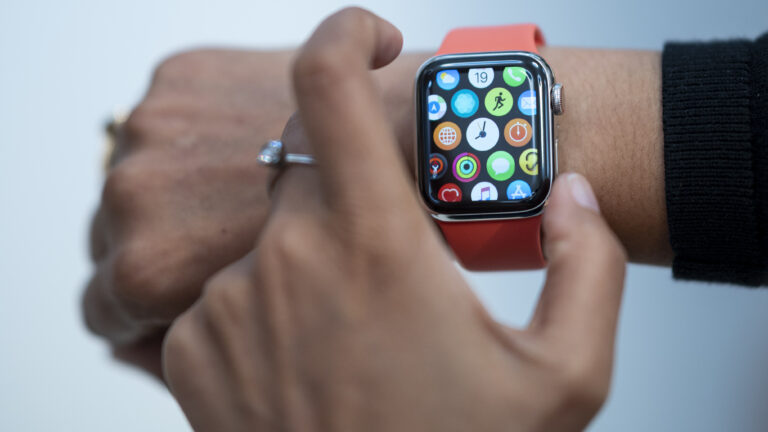virtual care
Biogen uses telehealth to boost postpartum depression drug
In what appears to be the latest partnership between drug makers and talehealth companies, biotech giant Biogen is partnering with Talkiatry to raise awareness about its postpartum depression drug Zurzuvae, my colleague Mario Aguilar reports. (Talkiatry recently raised $130 million in venture funding and has a staff of more than 350 psychiatrists.)
Under the partnership, Talkiatry has a new landing page on its own site aimed at raising awareness about postpartum depression. After taking an initial assessment, visitors are directed to the telehealth company's care programs, and the Zurzuvae website includes a link to Talkiatry's landing page. The financial terms of the deal weren't disclosed.
It's a similar model to ones followed by pharma giants like Eli Lilly and Pfizer, both of whom are working with telehealth companies to make it easier for patients to learn about, and get their drugs. Read more on the deal, and what it means, from Mario.
What Kaiser Permanente learned from using Apple Watch tech in Parkinson's care

Mario also dug into a Kaiser Permanente pilot exploring how Apple Watches help keep Parkinson's disease patients out of the hospital. Since 2023, the health system has been furnishing some patients with an Apple Watch app called StrivePD; the app, sold by Rune Labs, uses onboard sensors to track tremors and other symptoms of the neurodegenerative disease, and shares the data with the patients, their caregivers as well as their doctors. Read about what Kaiser clinicians found in the experiment's early days, and whether the program is financially sustainable, here.
The case for a new medical specialty: asynchronous care
In a thought-provoking First Opinion, physicians Muthu Alagappan, Rishi Khakhkhar, and Ben Kornitzer propose an entirely new model in which doctors don't need to juggle in-person and online messaging-based care, but instead carve out a new specialty devoted specifically to "asynchronous medicine."
"Today, the fastest-growing care setting isn't the hospital or home — it's the mobile phone," they write. "The explosion in patient messaging is a clear sign that patients want more access to information about their health, despite the long wait times and often unclear responses." Read more on their proposal that leans on technology, and how they're hoping to build a reimbursement model that rewards asynchronous care, here.
Cancer
AI is coming for lots of jobs. What about that of the cancer researcher?
My colleague Angus Chen, who covers cancer for STAT, has recently dissected stunning comments by OpenAI co-founder Sam Altman suggesting that artificial intelligence might not only cure cancer, but may also one day replace principal investigators. It's a bold claim that has garnered a mixed reception from actual cancer researchers; Angus discussed Altman's vision with Shantanu Singh, a machine learning biologist and co-leader of the Carpenter-Singh Lab at the Broad Institute.
"Is there an ability of these models to mimic what we call creativity? I think Altman has a reason to be optimistic because they've beaten expectations, but it's not clear how much you can extrapolate from that," Singh said. Read Angus' Q&A here.
industry odds & ends
Otsuka and Amalgam partner on Alzheimer's care tech
Precision health company Otsuka — which, you may remember, decided to price its depression digital therapeutic lower to make it more accessible even if it'll lose money on it — is now partnering with Amalgam on an app for the caregivers of Alzheimer's patients. The app, called Elevmi, is based on a large language model trained on information from the National Institute on Aging and an online mental health site, PsychU.
Hello Heart joins Amwell's telehealth network
Virtual care provider Amwell, whose clients are typically insurers with employer customers, has signed preventive heart health startup Hello Heart onto its clinical programs platform. That means employers paying for Amwell health plans for their own workers can offer Hello Heart accounts to beneficiaries with high blood pressure, high cholesterol and other cardiovascular risk factors, the companies announced today.


No comments